Movie Review: The Front Line
by HeadsNo2

![]()
It’s summer blockbuster fever, and next up is another one of last year’s critically successful films, war thriller The Front Line. It may not have beaten out Bow, The Ultimate Weapon in terms of box office success, but it was acclaimed enough to be South Korea’s official submission to the 84th Academy Awards. Whether or not it made the final shortlist (it didn’t) doesn’t deter from the fact that this is some quality filmmaking. It’s not always easy to watch, as few war films are, but it’s got something to say, and says it well.
This is the sort of movie that rises and falls upon the chemistry between brothers in war, and on that front, stars Shin Ha-kyun and Go Soo deliver along with an excellent supporting cast. Queen Seon Deok and Tree With Deep Roots writer Park Sang-yeon delivers a script that sometimes delves into the melodramatics but keeps us finely in tune with the characters, while director Jang Hun provides a stark and sometimes alarming glimpse into the senselessness of war. There aren’t heroes here – at least not in the way we’ve come to expect – but real men forced to make harrowing decisions. It’s dark, it’s bleak, it’s war. What is it good for?
The Front Line is set against the backdrop of the Korean War, which spanned from 1950-1953. Though we get brief flashbacks to the formative years of the war, most of the film takes place during the final months, where armistice negotiations between North and South Korea did nothing to stop the rampant fighting and killing that claimed hundreds of thousands of lives. The title isn’t just for show, either – we find our heroes on the literal front line of the war, forced to fight over ownership of a hill on the 38th parallel dividing the two sides.
The initial premise for the movie led me to believe that we were being given more of a mystery thriller than a straight war film – the hero is first assigned to investigate strange occurrences in the Alligator Company, so named because of the low survival rate of alligators. That mystery proves compelling, and is what elevates the first half of the movie into something unique. But by the halfway mark, we were running low on thrills and high on war commentary. That’s not necessarily a bad thing, but I did have to do some resigning to the fact that this film was really about how War Is Terrible, with the characters there to serve as satellites orbiting around that message.
The structure can be surprising, in that it isn’t about heroism as much as it is about survival and brotherhood across a political divide. In that sense, we get the refreshing change of flawed people instead of war heroes, because the idea of blatant slow-motion heroism would undercut the gritty quality of the proceedings. This is as close to war as we never hope we’ll be, and the movie does a good job of putting us in the thick of action without being too slick or glossy about it. I always appreciate that about a film.
We first meet our lead, KANG EUN-PYO (Shin Ha-kyun), as a First Lieutenant of the Counterintelligence Corps with what could be considered a little too much heart for war. He’s witness to strained armistice negotiations taking place over fictional Aerok Hill (try spelling that backwards – you see what they did there?), which switches hands between North and South so frequently that it’s hard for anyone to keep track. The hill is considered to be a strategic piece of land due to its proximity to the dividing border, and it’s there that Eun-pyo finds himself assigned to as part of an investigation unit into a strange series of events, leaving one captain dead by a gun only their officers use, as well as letters delivered through the South’s mailing system despite being written by North Korean soldiers.
With tensions between both sides at an all-time high, the concern that there might be a mole within the Alligator Company positioned on that pivotal hill is taken with all due seriousness. An interesting fact Eun-pyo is told: a college friend he’d long thought dead is in fact alive and well, and so happens to be stationed within the Alligator Company.
This propels Eun-pyo into a flashback of the last time he saw his bespectacled and frightened friend, during a battle in the first year of the war that had them outnumbered and overpowered. They end up captured by the North, and find themselves face to face with HYUN JUNG-YOON (Ryu Seung-ryong, it’s good to see you again!), a military officer with an interestingly friendly demeanor.
He doesn’t display hostility toward our boys, because he’s under the misguided belief that the war will be ending in a week. He lets them go because he doesn’t consider them enemies – they’re brothers that will soon help to rebuild a reunified nation.
Right off the bat, the North is established not as outright villains, but fellow countrymen looking for an end to the fighting. Of course they want it to be an end on their terms, but this first encounter paves the way for how we view the North later in the film.
Back in the present, Eun-pyo begins his trek to Aerok Hill with new captain JAE-OH (Jo Jin-woong) and a seventeen-year-old recruit, NAM SUNG-SIK (Lee Da-wit). Small pieces of dialogue work in great effect to give life to what could otherwise be stock characters – already we get a sense that Captain Jae-oh is a dangerous man to have on the battlefield. He believes Eun-pyo is headed to the front line because of the glory that will come after the war ends soon… leading us to believe that this misguided notion of glory is exactly the reason why he’s headed off to war.
New recruit Sung-sik is overenthusiastic and naive, and the fact that he readily proclaims that he’s ready to die for his country lets us know that he’s probably never seen a battle in his life. It’s fitting then, in a sad way, that Alligator Company is as bleak as they come and a stark wakeup call to these men who aren’t fresh from a battlefield.
Immediately upon arrival to the eastern front they find men in North Korean uniforms who defend themselves by saying that they wear them only to guard against the cold. Discipline is severely lacking, morale is low, men are scattered. The acting captain of the unit, SHIN IL-YOUNG (Lee Je-hoon) is much younger than Eun-pyo and dispassionately shoots morphine into his arm the minute Eun-pyo happens upon him.
It’s almost frightening that Il-young is so distant, because it makes the entire camp seem like a ghost town. We see what made Il-young the way he is is revealed later in the film, and his character shines through as a highlight, well-written from start to finish. He’s another example of all the flawed characters in this tale – there are no clear-cut heroes here. Eun-pyo may be the one with the most morals still standing, but this film convinces me that such an overt sense of morality may not be the best thing for warfare.
Il-young proves that he has a great sense for the battlefield despite his age, which explains his promotion. He certainly has more sense than new captan Jae-oh, who comes in with guns blazing and no knowledge of the hill that these men have fought countless times over. His first decision as a leader, directly against Il-young’s advisement, loses the team their anti-aircraft missiles. Way to go, Jae-oh.
When Eun-pyo finally reunites with his college friend, KIM SOO-HYUK (Go Soo) whom we last saw being carted off by North Korean soldiers, the meeting is easy if not a bit tense. Unlike his glasses-wearing, wet-behind-the-ears look he sported before, now Soo-hyuk is much more war-hardened, much more jaded, and much more cynical.
More so than Eun-pyo, who I had some trouble connecting with, Soo-hyuk really carries the moral center of the film. That moral center may not always be good, and frequently it isn’t, but it’s always believable. Suspicion gets inevitably cast on him as we see his very matter-of-fact way of dealing with the enemy – and it is a no mercy policy. Eun-pyo is shocked when Soo-hyuk first kills a handful of North Korean soldiers in a trench when they didn’t pose direct harm, but chocks it up to the urgency of the situation. Later, when Soo-hyuk shoots a North Korean soldier in one of the many cave systems of Aerok Hill, we start to see what might be a deeper problem – that maybe Soo-hyuk has lost something in this war he might never get back.
After a vicious fight to retake the hill, one of many we see in the movie, Eun-pyo becomes suspicious once he sees that young Sung-sik is drunk. Since there is no booze to be found on their side of the war, his suspicions lead him to find Soo-hyuk and his group with a North Korean letter, and North Korean booze, in one of the caves.
Though the situation is tense enough for Eun-pyo to pull out a gun, fearing that his friend may be siding with the communists, Soo-hyuk remains calm as he tells the story. Because the hill changes hands so frequently between North and South – one day they have it, one day they don’t – Soo-hyuk and his buddies attempted to bury supplies in the cave so they’d have less to haul. The North Korean soldiers were wise to this and left them multiple presents (of the intestinal kind, and we get two up close and personal shots of it), but it wasn’t long before that buried box became a sort of illicit exchange.
There’s a great comedic moment when they find the bottle of wine along with a packet of letters, one that’s funny because it’s played so incredibly straight. Among the seriousness of wondering whether the wine is poisoned, overeager funny man OH KI-YOUNG (Ryu Seung-soo) and friendly cohort YANG HYO-SAM (Go Chang-seok) decide to sway Soo-hyuk to the drunk side. While acting like he’s resigned to throwing the wine away, Ki-young intentionally waves it under Soo-hyuk’s nose, hoping that the scent will move him. It does, and we get to see a cuter side to Soo-hyuk as he and the men share a brotherly moment over booze and letters.
The letters are just one of the recurring motifs and shared items between the two warring sides. But because the war was inherently a civil war, the men fighting each other are technically brothers and countrymen. This bond is explored throughout the film to great effect, giving a fresh spin to an otherwise bleak tale of war by painting both sides as unwilling to fight, but more or less forced to by higher forces.
So Eun-pyo, normally removed from the thick of battle and under the idea that all fraternization with communists is bad, doesn’t end up flying off the handle when he hears that Soo-hyuk has been delivering letters from North Koreans to their families in the South in exchange for things like booze, matches, chocolate, socks, etc. The hill has changed hands at least thirty times, and we get the sense that all these soldiers are resigned to the futility of it when they can’t even fault the other side. That’s simply the nature of this war.
Here’s a character that never really jived for me no matter which way the movie tried to slice it – she’s CHA TAE-KYUNG (Kim Ok-bin), who Eun-pyo first encounters at a frozen creek. He finds himself there while hunting for clues about the allegedly murdered captain, although according to Soo-hyuk, the reason why the captain was shot with his own gun was because he killed himself running away from battle. It’s suspicious, but in a place where death reigns supreme, it’s hard to disprove.
The men have been encountering an eerily accurate enemy sniper who they’ve nicknamed ‘Two Seconds’, because they’ll see the sniped body go down a full two seconds before they hear the shot. It’s doesn’t come as a big surprise that Tae-kyung is the infamous sniper, who can torture a man by shooting his various limbs before his vitals in one minute, and then eat South Korean chocolate given to her by Eun-pyo the next. Like the rest of the North Korean army in this movie, she’s not depicted as evil – but compared to the sort of character Jung-yoon brings as a Northern commander even with limited screen time, her character feels manufactured. Not because of the suspense she brings by being Two Seconds, but as a female whose picture alone captures Soo-hyuk’s heart, giving them a tangential tie that gets carried through the movie but one that seems almost extraneous.
In a nice move, the camera ends up in a fixed position on Aerok Hill, watching the proceedings almost as if we were seeing them in time-lapse. We see the seasons change and the uniform colors in front of the camera change, but the fighting is the same. One day the South has the hill, one day the North has the hill. The impression is that the battle has become, at this point, simply tedious.
The gift exchange via the Cave Box keeps recurring, this time with pictures of Tae-kyung and a pair of German goggles that Soo-hyuk adorably gives to Nam Sung-sik. This is one of the quieter moments of all our boys being together before things take a darker turn, as Soo-hyuk goes on a ten-man mission to hunt down Two Seconds and fails, even though he uses one of his men (I won’t say which, but it is brutal to watch) as bait in order to catch her.
I don’t know if the movie wants me to side with Eun-pyo or Soo-hyuk on this one, but it’s why Soo-hyuk remains so damn compelling. The bad things he does aren’t intended to be awful, but single-minded. He doesn’t have a lack of care toward his fellow man, but faced with the situation of capturing the enemy sniper that’s caused so much death either now or never, he chooses now. I understand him, even if Eun-pyo doesn’t.
Blaming Soo-hyuk for the death of their friend, Eun-pyo wonders if this is how Soo-hyuk got promoted to lieutenant in two years – by being a heartless bastard. Affected by his words, Soo-hyuk’s knee-jerk reaction to a war orphan with an amputated arm asking him if it will ever grow back is to cruelly tell her that arms don’t grow, and that she’ll remain a freak forever. The sound of her crying serves as background to the two men engaging in a fist fight. Eun-pyo wonders if Soo-hyuk is even human any more, and Soo-hyuk replies that he isn’t human anymore – he died long ago.
Soo-hyuk: “What do you know about war?”
Eun-pyo: [matter of fact] “Things are worse in the rear. You’re not the only one fighting a war. Everybody is in hell!”
Soo-hyuk: “You don’t know a thing about hell.”
Eun-pyo wonders if hell is Pohang – the scene of a past battle that’s caused one of their fellow soldiers to go mad. As if on cue, that soldier is outside, currently holding a gun and asking where his missing platoon has gone. Il-young tries to calm him down, but gets shot in the shoulder for his efforts.
In one of the most harrowing scenes of the movie, the infamous incident at Pohang is explained. In flash back we see Soo-hyuk and Il-young on the wrong end of a boat retreating from battle, one that threatens to leave them and a good number of their own soldiers behind. Because of the men frantic to board the boat, the soldiers in the boat begin to shoot their own men. In the urgency of the moment, a wide-eyed Il-young takes the helm of a machine gun and massacres the men in the boat so that his company can board.
Once the boat is on the sea, Il-young is faced with the judging glare of his fellow men – even though those men are alive because of him. It’s survivor’s guilt, and it’s no wonder that Il-young attempts suicide at the prospect of what he’s done. But Soo-hyuk stands up for him, challenging any of the men in the boat to deny that Il-young saved their lives. Ki-young is there too, and agrees. The soldier we saw lose his mind in the present cries as he makes the official declaration: they’ll say that the second platoon was killed in combat.
It’s a dark scene, and another example of what this film does excel at by presenting the moral gray area that exists in war. We can choose to judge Il-young, but we can’t know what it was like for him to do what he did – and clearly the guilt lives with him day in and day out, causing him to turn to morphine for relief.
In another highlight of the film, a reckless Jae-oh orders the Alligator Company to defend Aerok Hill against the Chinese – a force Il-young knows that they can’t win against, because the Chinese have more men than Alligator Company has ammunition – and after a tense moment where guns are drawn, we find our boys defending the hill on a rainy night.
They can’t see a thing, and it’s only when lightning flashes that we see the vast number of Chinese soldiers storming the hills – and the sight is frightening. Faced with losing everyone, they demand that a trembling Jae-oh order the retreat, but he refuses the moment that HQ demands that they fight till the last man. “Soldiers die when they’re told to,” a clearly frightened Jae-oh proclaims.
Soo-hyuk is forced to make a decision to save their company, once again throwing things into a moral gray area, and once again causing Eun-pyo to draw his gun. By now I’ve written Eun-pyo off as fairly toothless, especially when he threatens to court marshal Soo-hyuk for the long list of things he’s done – and in the midst of their foxhole, with battle and possibly death waiting outside, Soo-hyuk just smirks at him. In the middle of a losing battle, Eun-pyo’s words carry no weight.
Unfortunately, even with the end of the war in sight, the men of the Alligator Company are called upon to fight for Aerok Hill once more, sent by higher-ups with little regard for their lives. It’s an exercise in futility of the highest kind.
Arguably, the first half of the film was better than the second, which devolved into a bleak emotional battering that isn’t new in war cinema. There’s flying limbs, stomachs split open, armless and legless soldiers still trying to fight on, all of the usual stuff. Unfortunately the tone that carried the first half – the mystery, the men of the Alligator Company who aren’t necessarily immoral but not moral either – all but disappeared by the second half in favor of letting us know how awful war is.
Early on, when Eun-pyo and Soo-hyuk run into Northern officer Jung-yoon for the first time, he tells them, “Do you know why you’re losing? It’s because you don’t know why you’re fighting.” By the end of the movie and three years of war, Eun-pyo still has no idea why he’s fighting. No one who leaves this movie will be thinking to themselves: “Man. That Korean War wasn’t very senseless or terrible, was it?”
When most of the storytelling weight was put on Eun-pyo alone, my attention had a tendency to waver. It’s not a fault of the acting, as Shin Ha-kyun delivered a stirring performance. Unfortunately, because he was always the outsider looking in, he had a tendency to just be a voice of dissent. (A lot of bark, not much bite.) However, I do like that there’s an argument to be made from this film as to whether all orders should be followed, or whether Eun-pyo’s sense of morality is more harmful than helpful to his fellow man.
I loved Soo-hyuk for all his imperfections, and all of the questionable choices he made. It would have been superb if we would have stayed with Soo-hyuk and his men, since there was so much to explore about the circumstances of survival during times of war, and to what extremes men can go to without losing all their humanity. In that sense, Soo-hyuk was superbly written and handsomely acted by Go Soo. Besides, who says there can’t always be hair gel in trench warfare?
I like that if there were villains in this movie, it wasn’t the North Koreans they were fighting against – if anything, the real villains were the men in power, senselessly ordering soldiers to their deaths. We got a very real sense for the disdain for war this director has, and the glorification of the soldier (only, without any real glory) and the specific set of rules that are an inevitable casualty of being in a universe so removed. We got our first introduction to that when Eun-pyo reached the Alligator Company camp, only to find that his rules no longer applied.
What this film did do a good job of was to show us the camaraderie between men who can sing a common ballad together one minute, only to kill each other the next. These are men who are inevitably pawns of power, ones who may not know why they’re fighting and don’t hold grudges because of it. It’s what lends a lot of the motifs such weight – like the shared letters, the cup etched with erotica, the lyrics to a song they can all sing. In the end there is no right or wrong, there’s only do or die. And there is a lot of dying.
On all technical fronts, this movie was executed extremely well. The visuals were crisp, clear, and striking, the camerawork so removed it was almost documentary in scale. There isn’t overarching orchestra music to manipulate us into feeling – in fact, there’s a noticed lack of score throughout the whole film that lets us make what we want to out of the grim reality we, and all the characters, are faced with. The directing hand doesn’t impose, and does only what it must to get the message across while simultaneously making the battles epic, yet horrifyingly real.
There are missteps in some inevitably manufactured moments and characters, but I actually appreciated the refreshing lack of textbook heroes. Instead of heroes, we were given survivors. To these men, it wasn’t as much a matter of winning the war as much as much as it was about accepting destiny, in whatever form it took.
The bottom line: An intense, unrelenting survival story of brotherhood in the midst of orchestrated chaos. War isn’t a backdrop for the tale as much as the air the characters breathe. With plenty of blood, plenty of guts, and nearly negative glory, this film is an assault on the senses likely to leave you feeling emotionally battered by the end, but better for it. It’s solid and solidly depressing all at once, a technical achievement in filmmaking that may or may not engage your heartstrings as much as it wants to. To use javabeans’ ten-point system, I’d give it an 8.
(For those interested in buying the DVD, an English subtitle release is available for preorder at Cine-Asia.)
RELATED POSTS
- It’s a February wedding for Go Soo
- Go Soo and Han Hyo-joo sign on to melodrama
- Fashion King holds its first script rehearsal
- Medical drama Brain’s teasers and stills
- The Front Line is Korea’s Academy Awards submission
- Summer blockbuster The Front Line opens to high expectations
- Go Soo and Shin Ha-kyun’s new movie
Tags: featured, Go Soo, Lee Je-hoon, Ryu Seung-ryong, Shin Ha-kyun

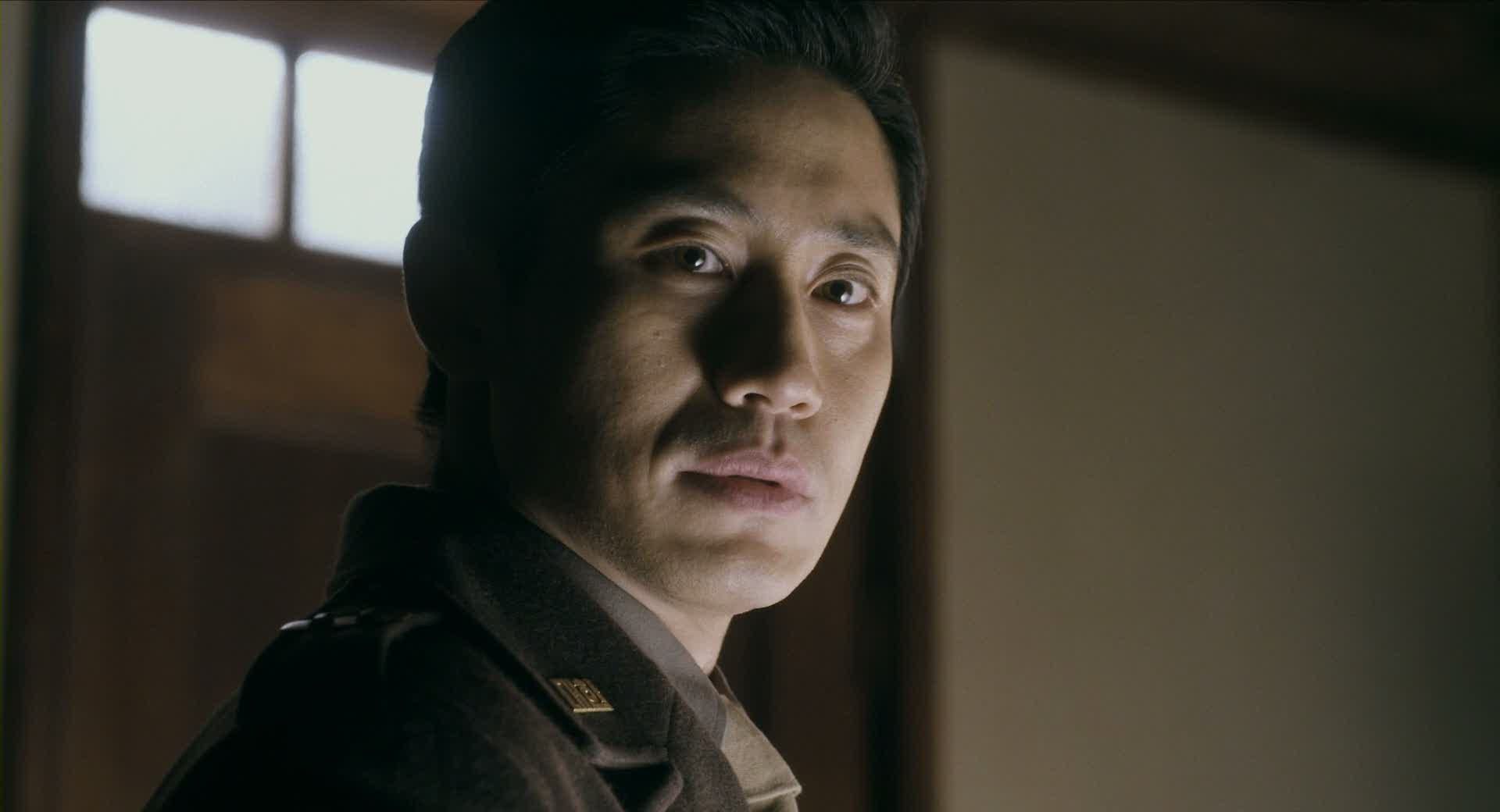
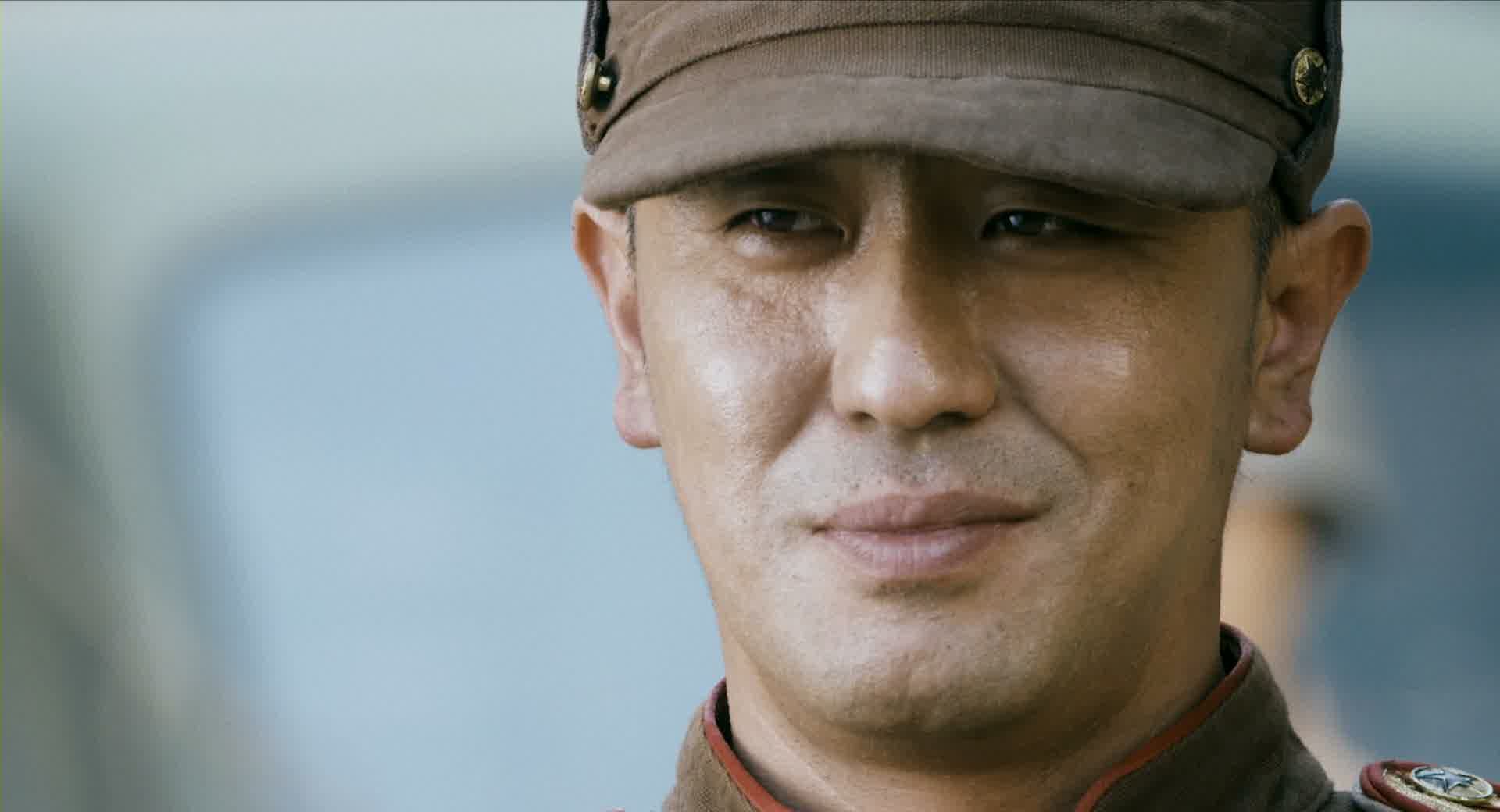
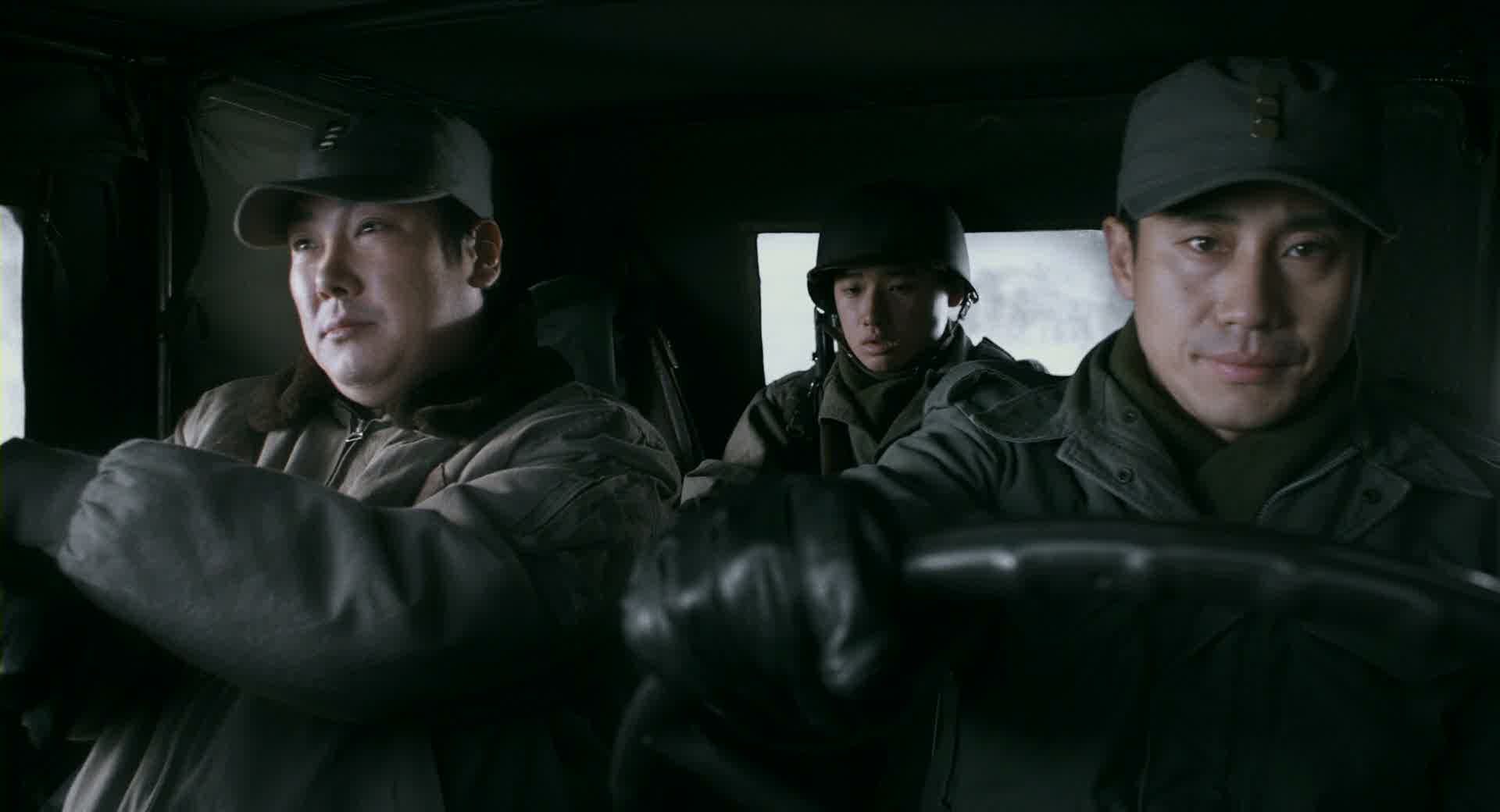
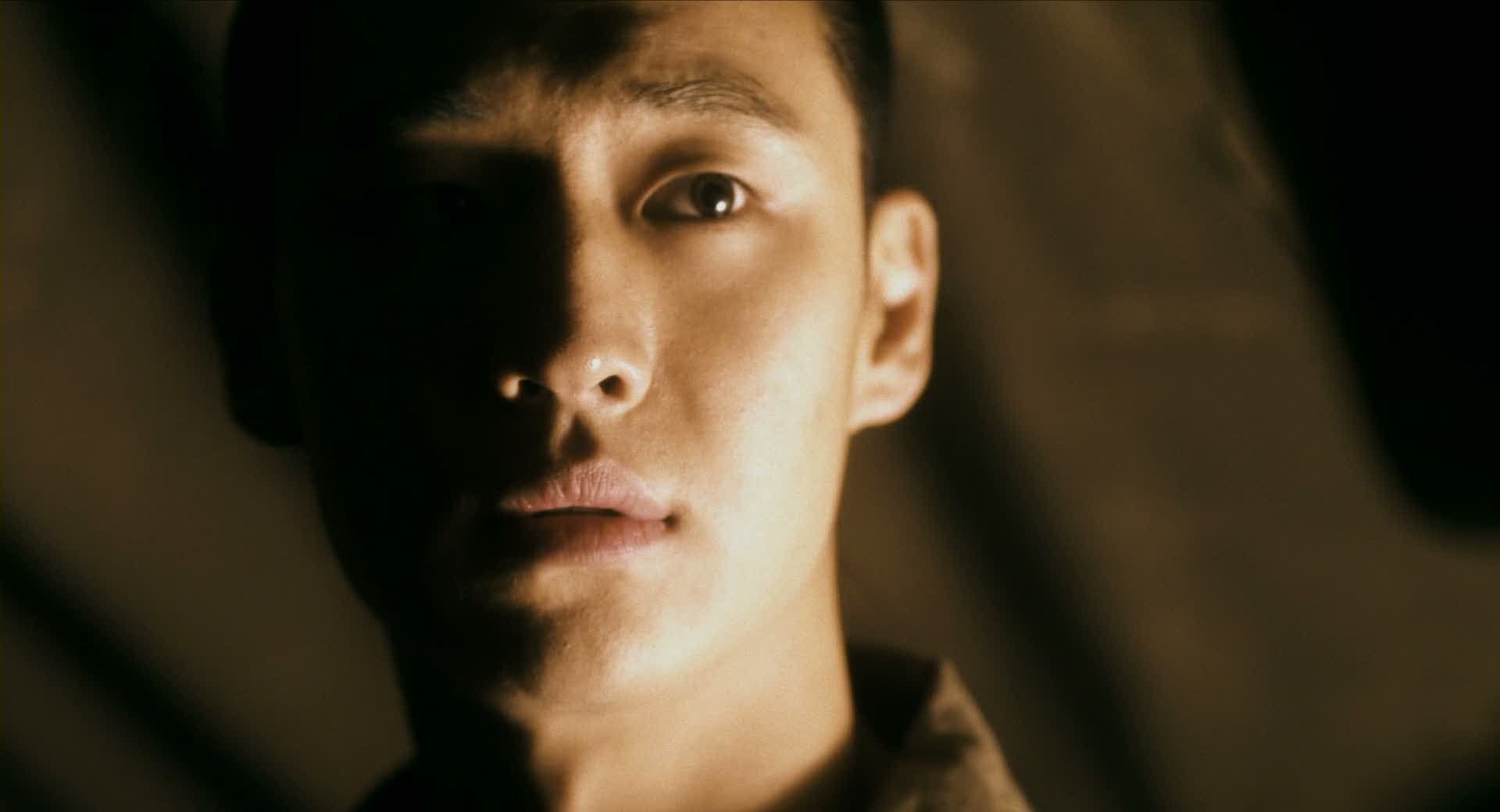
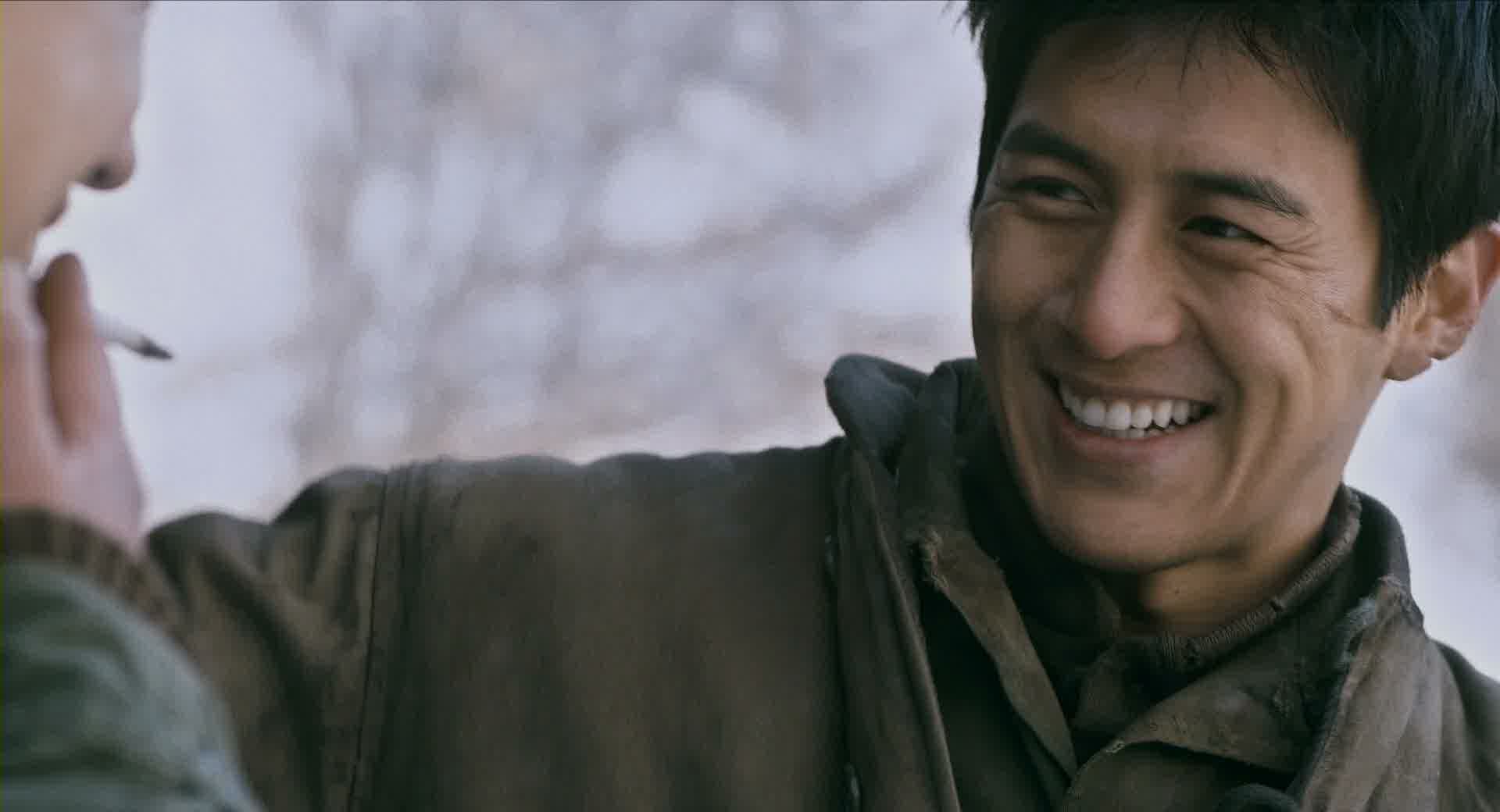
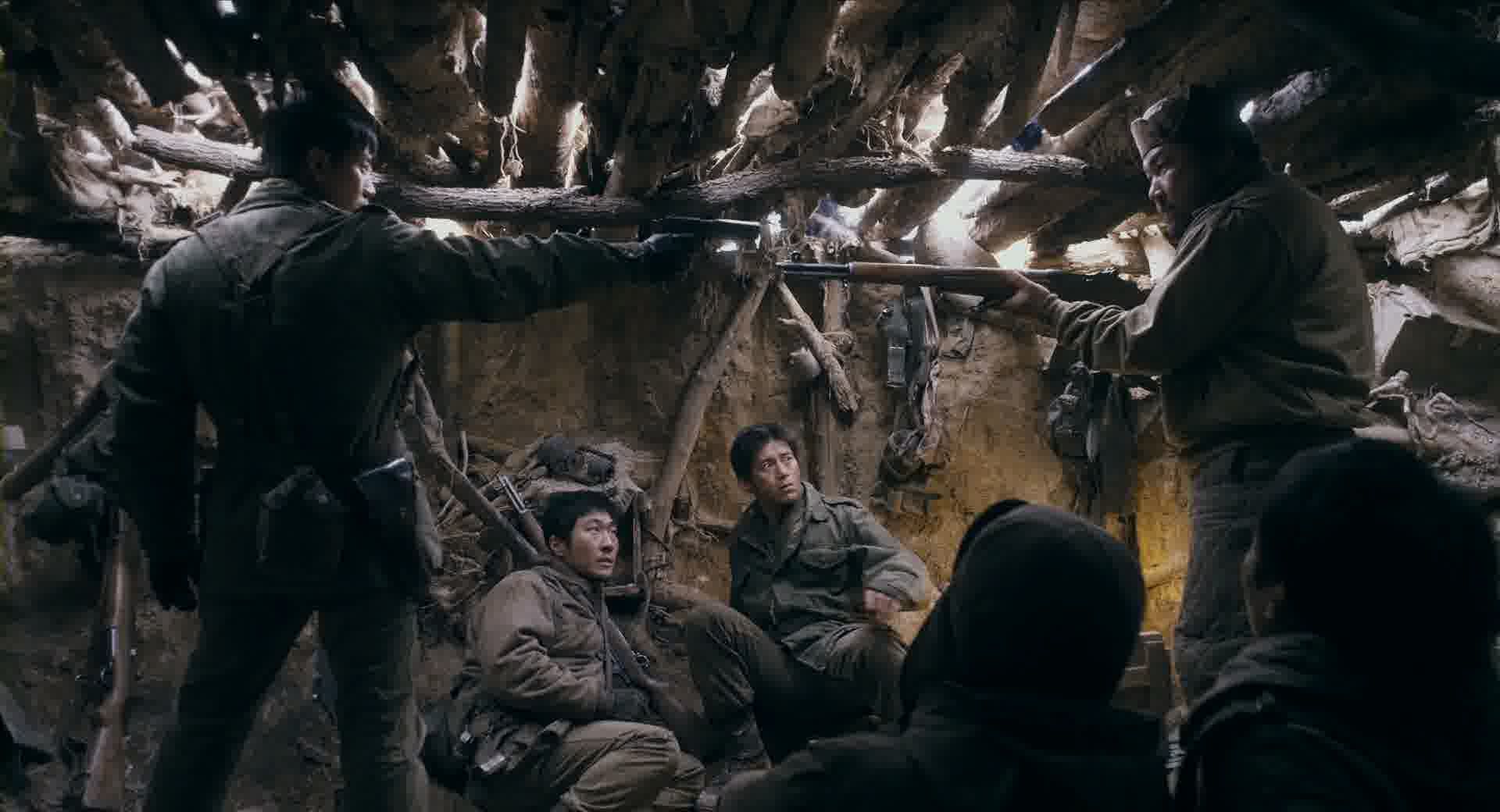
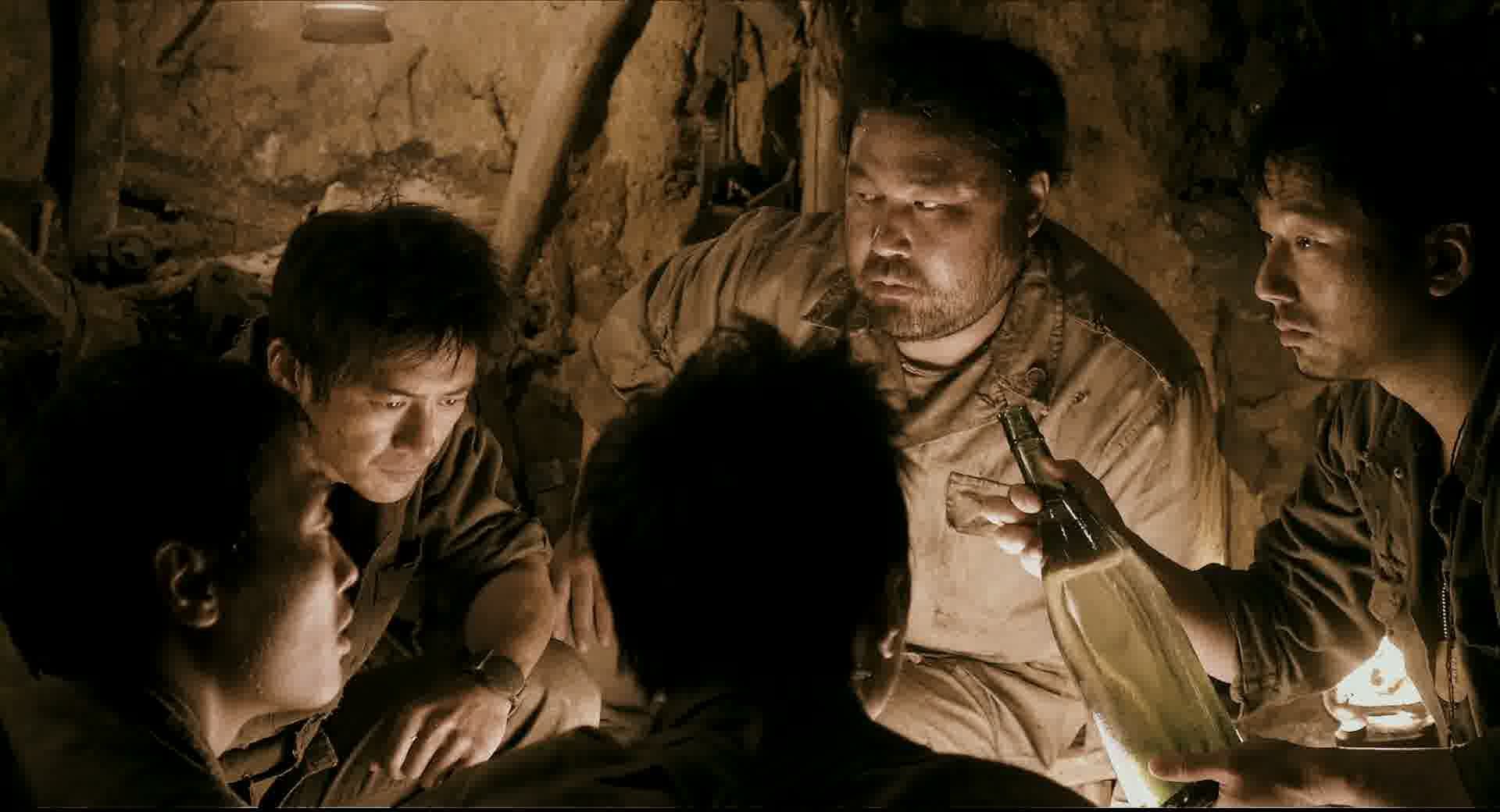
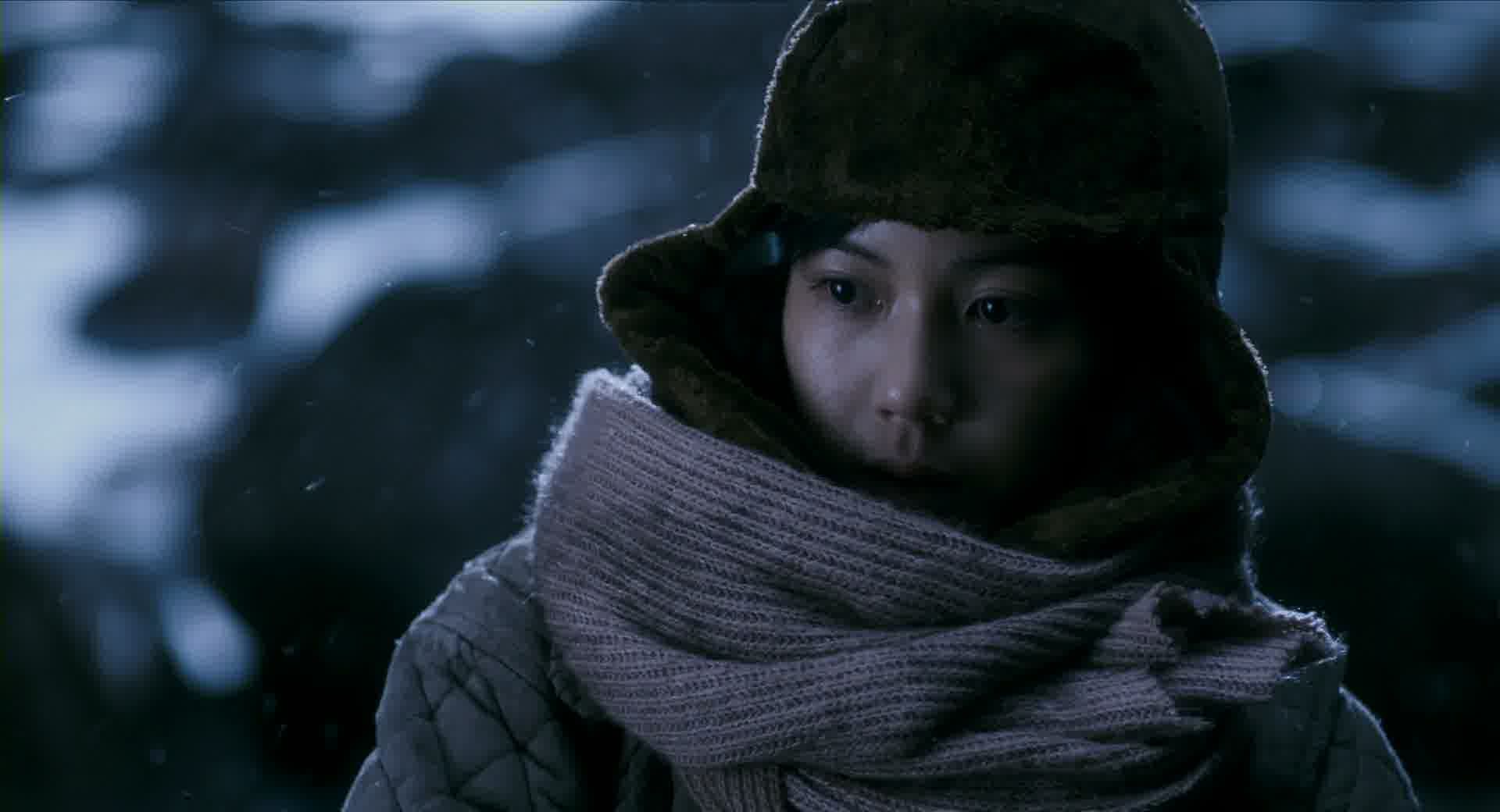
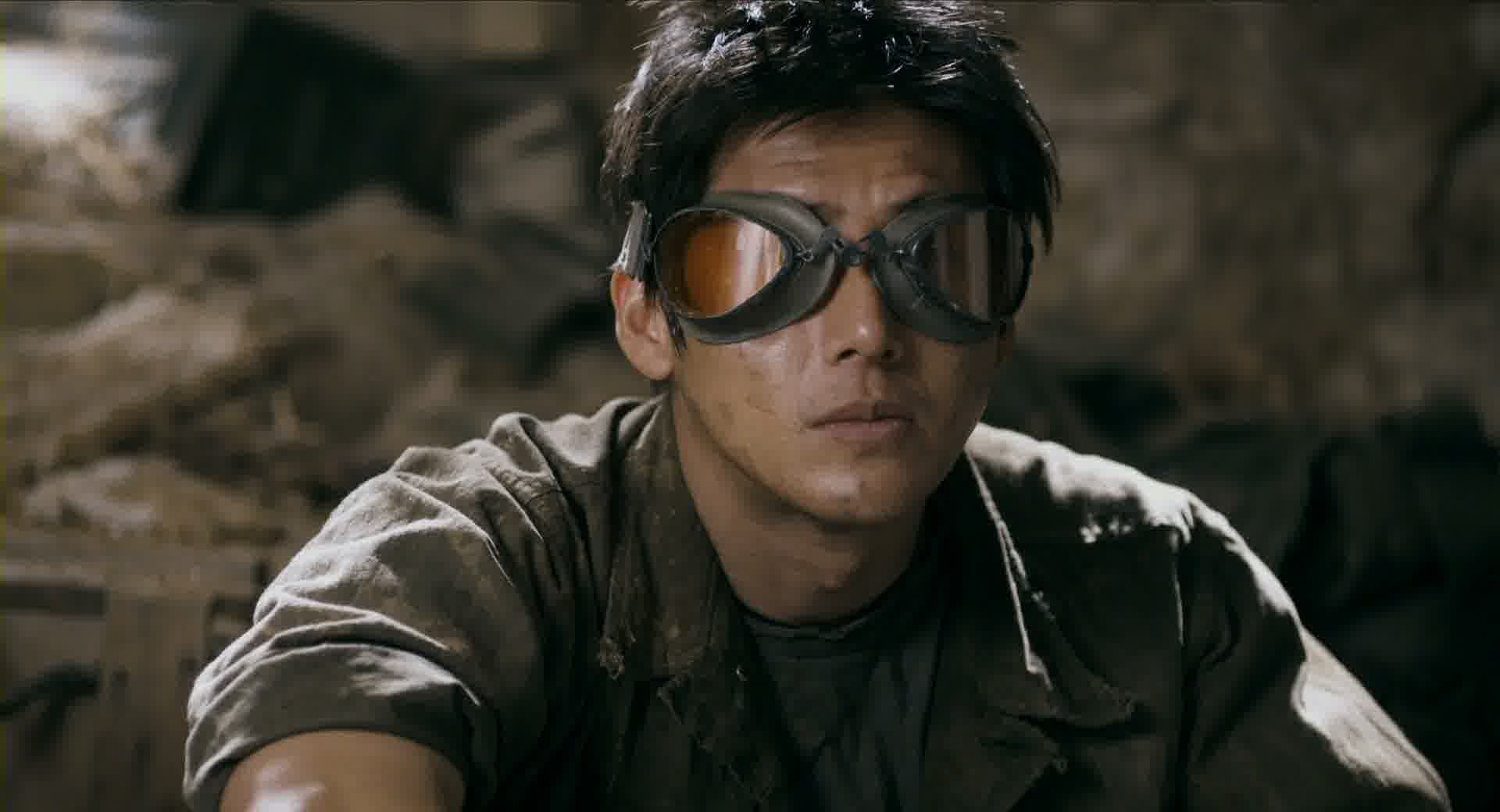
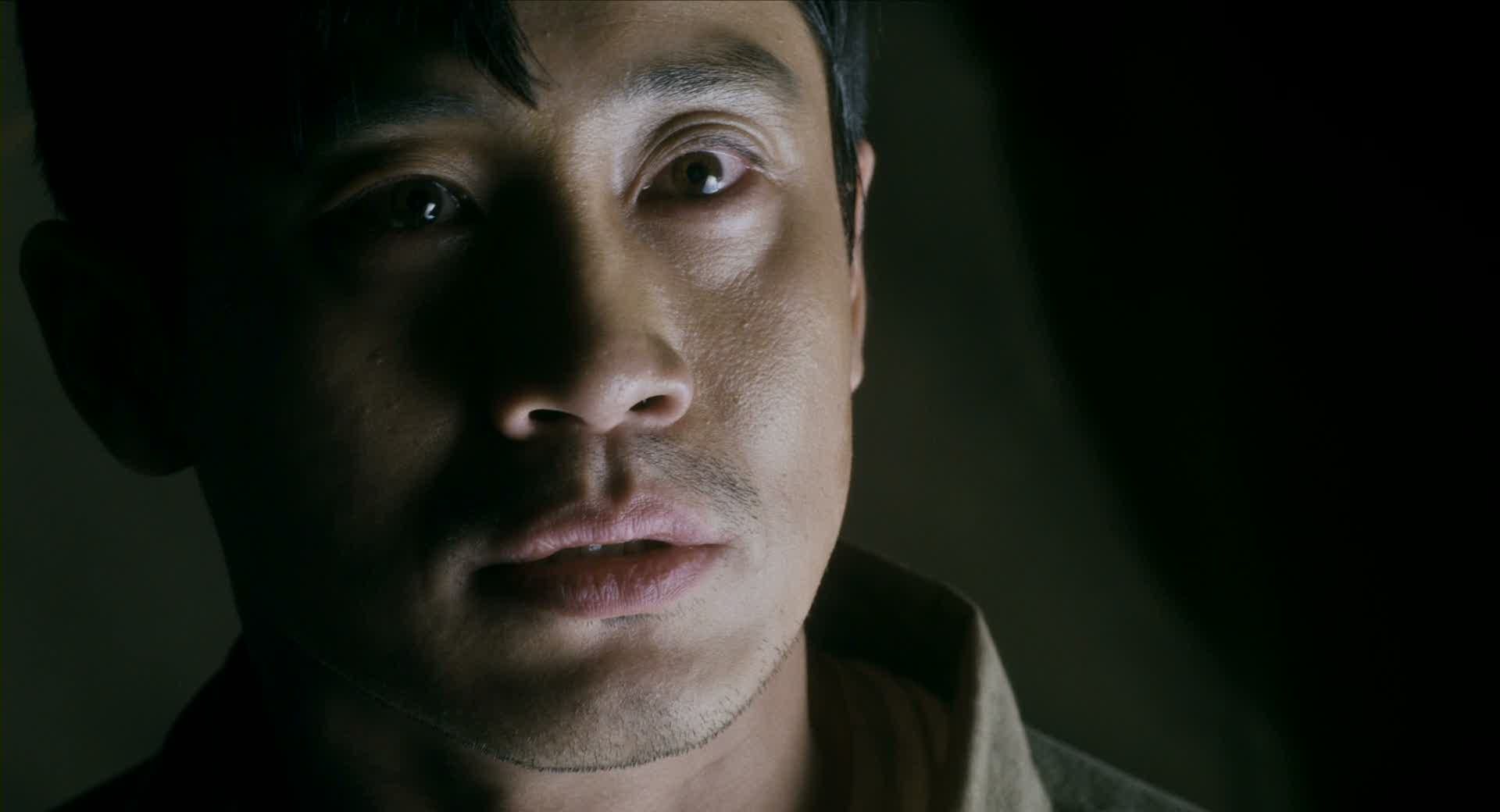
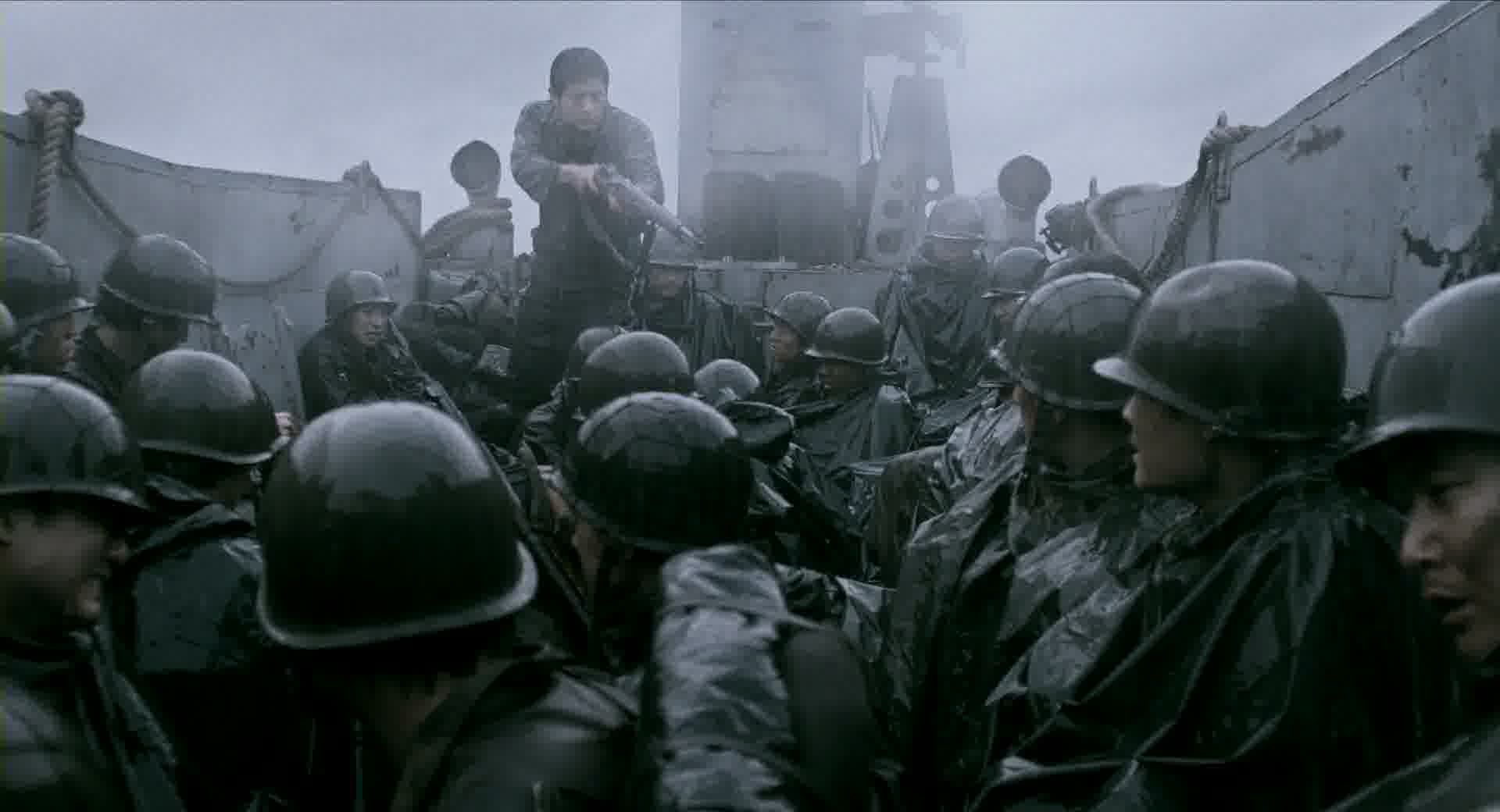
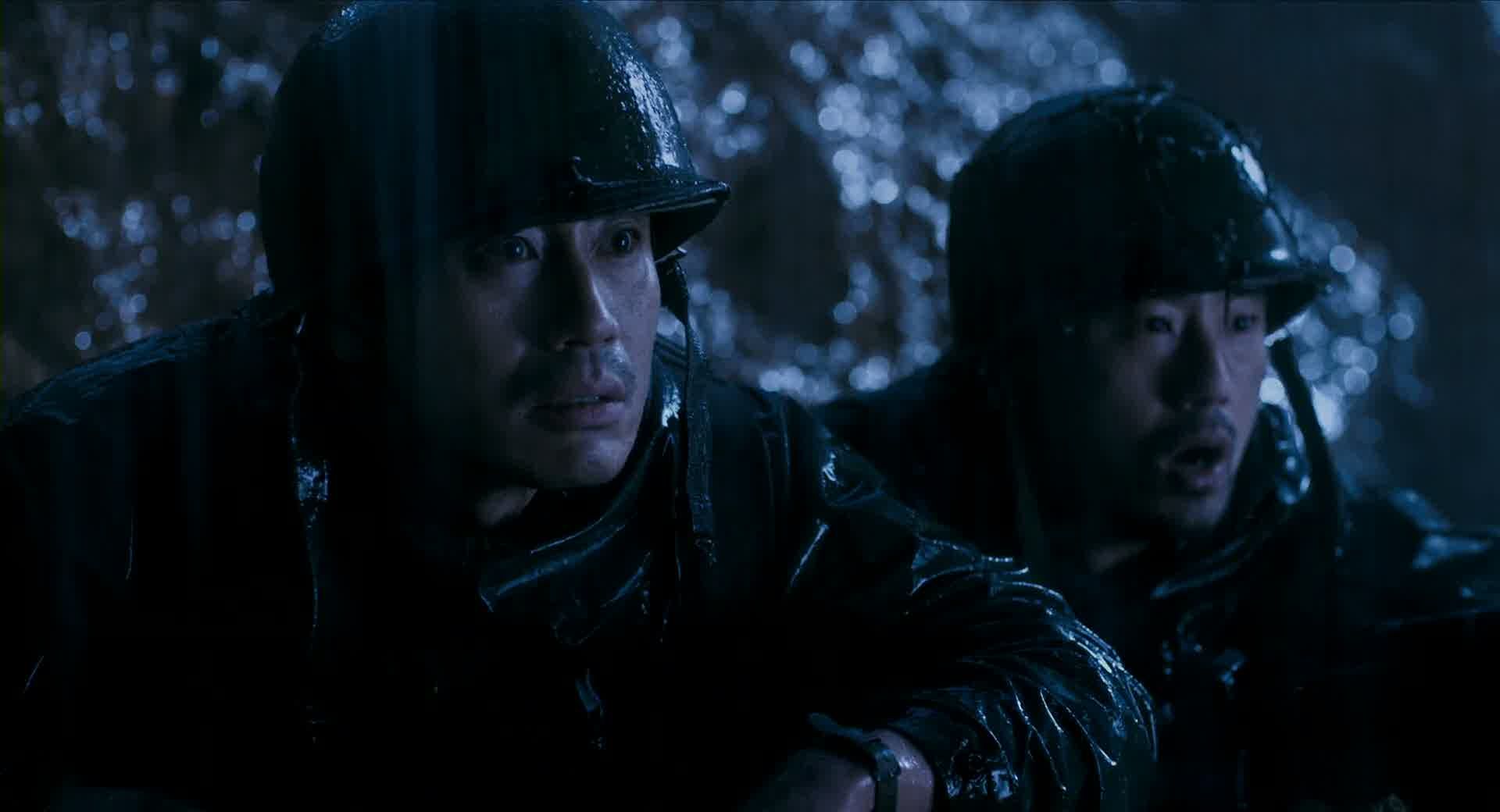
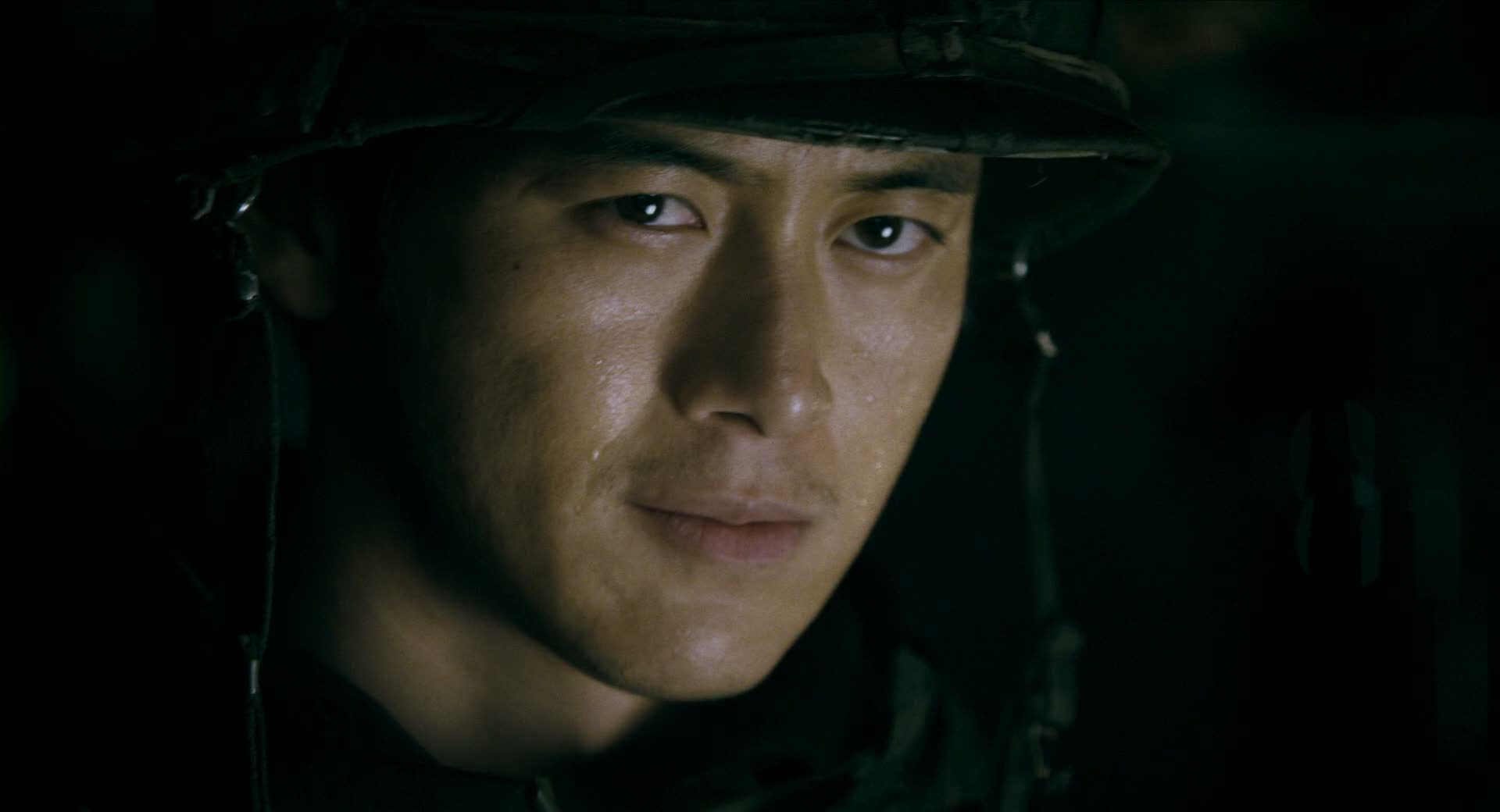
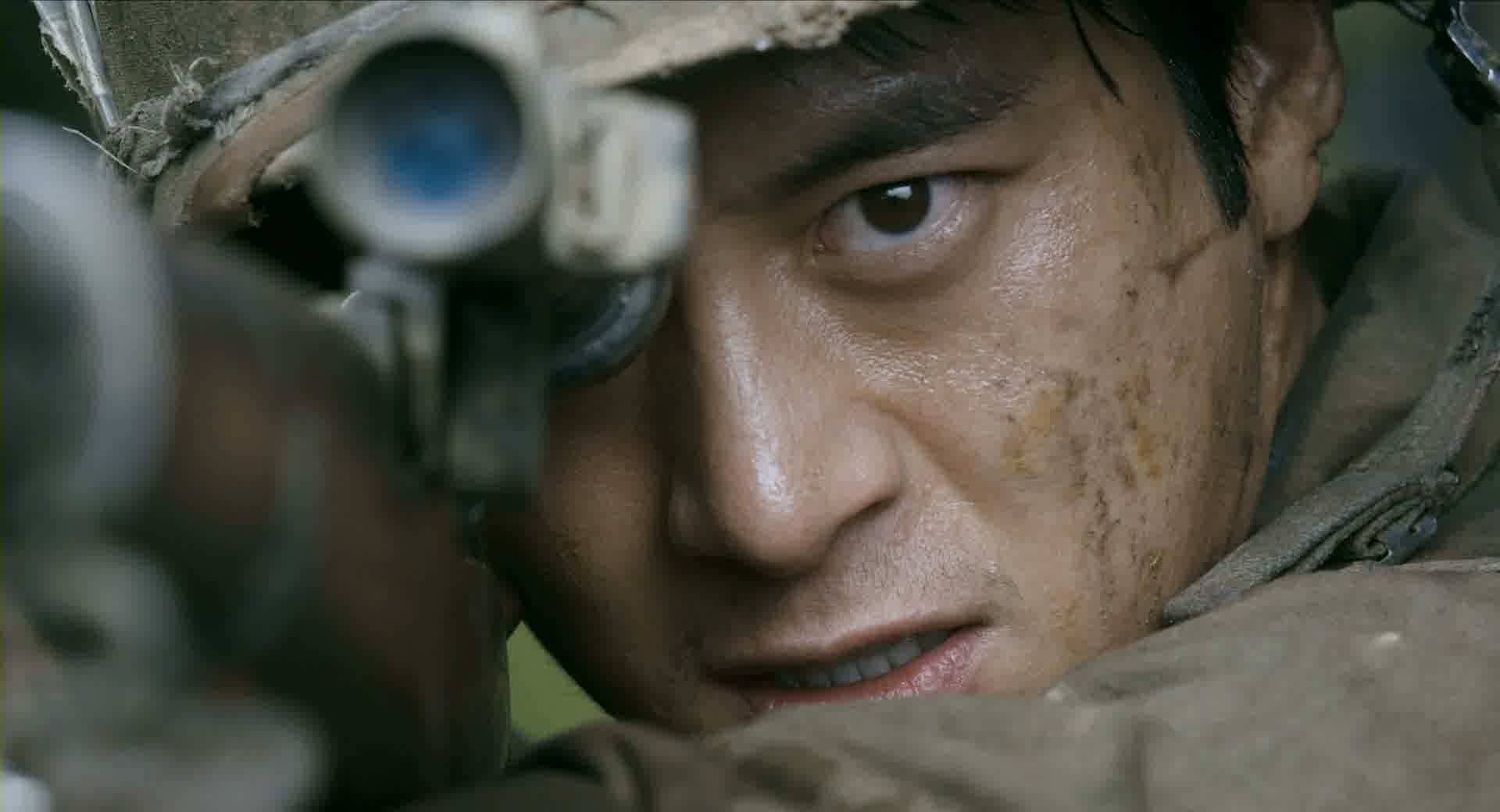
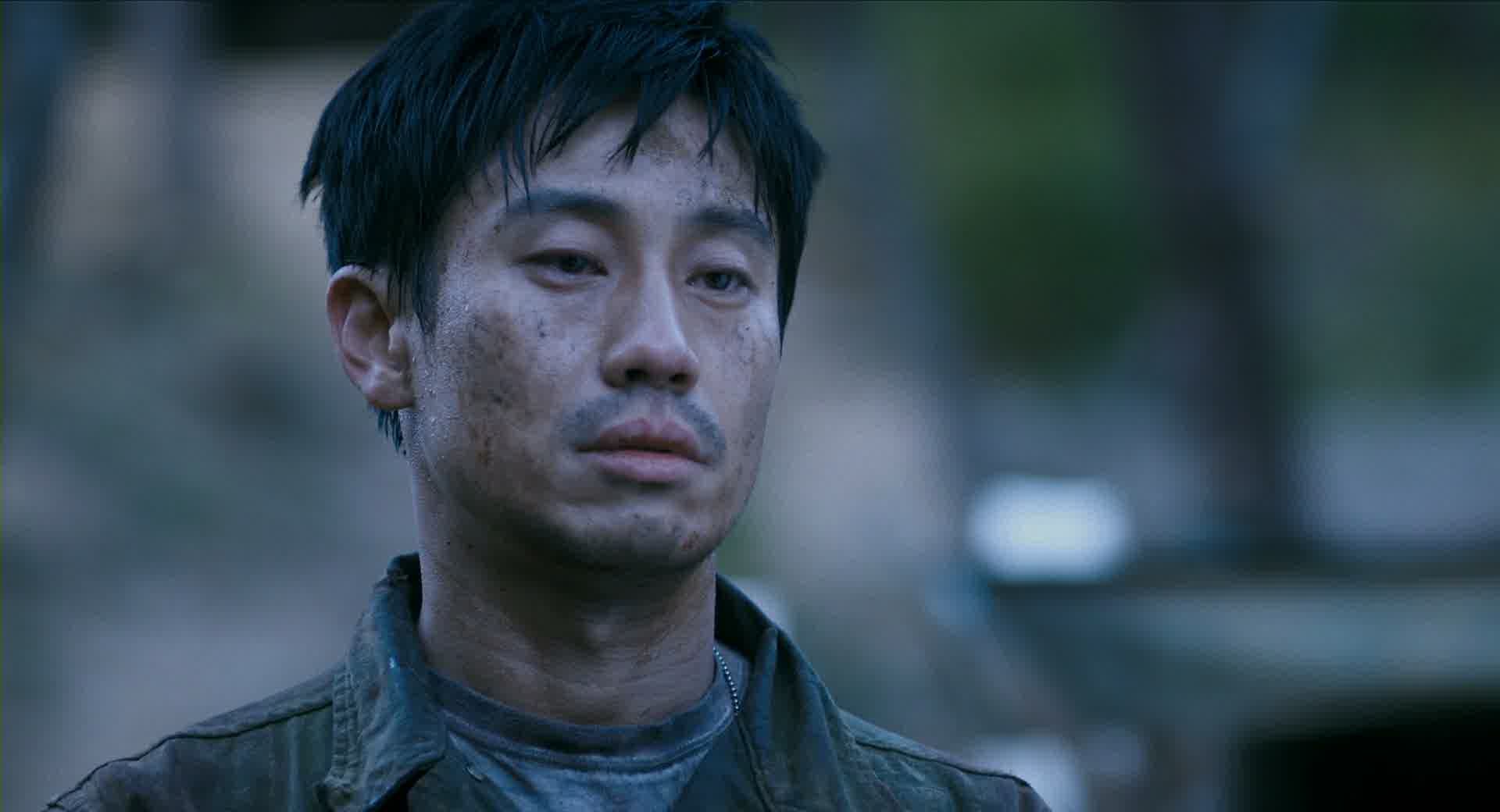
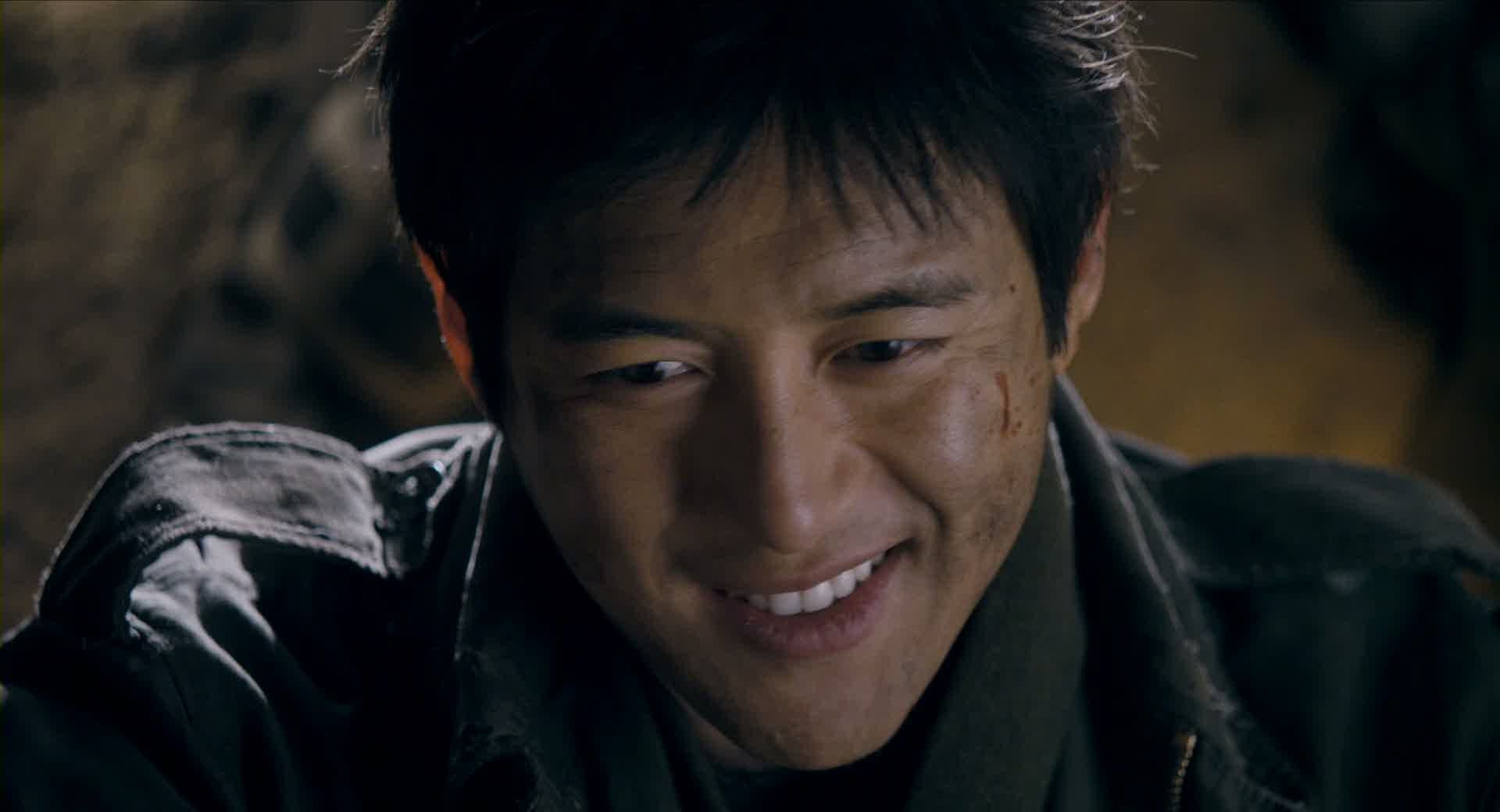
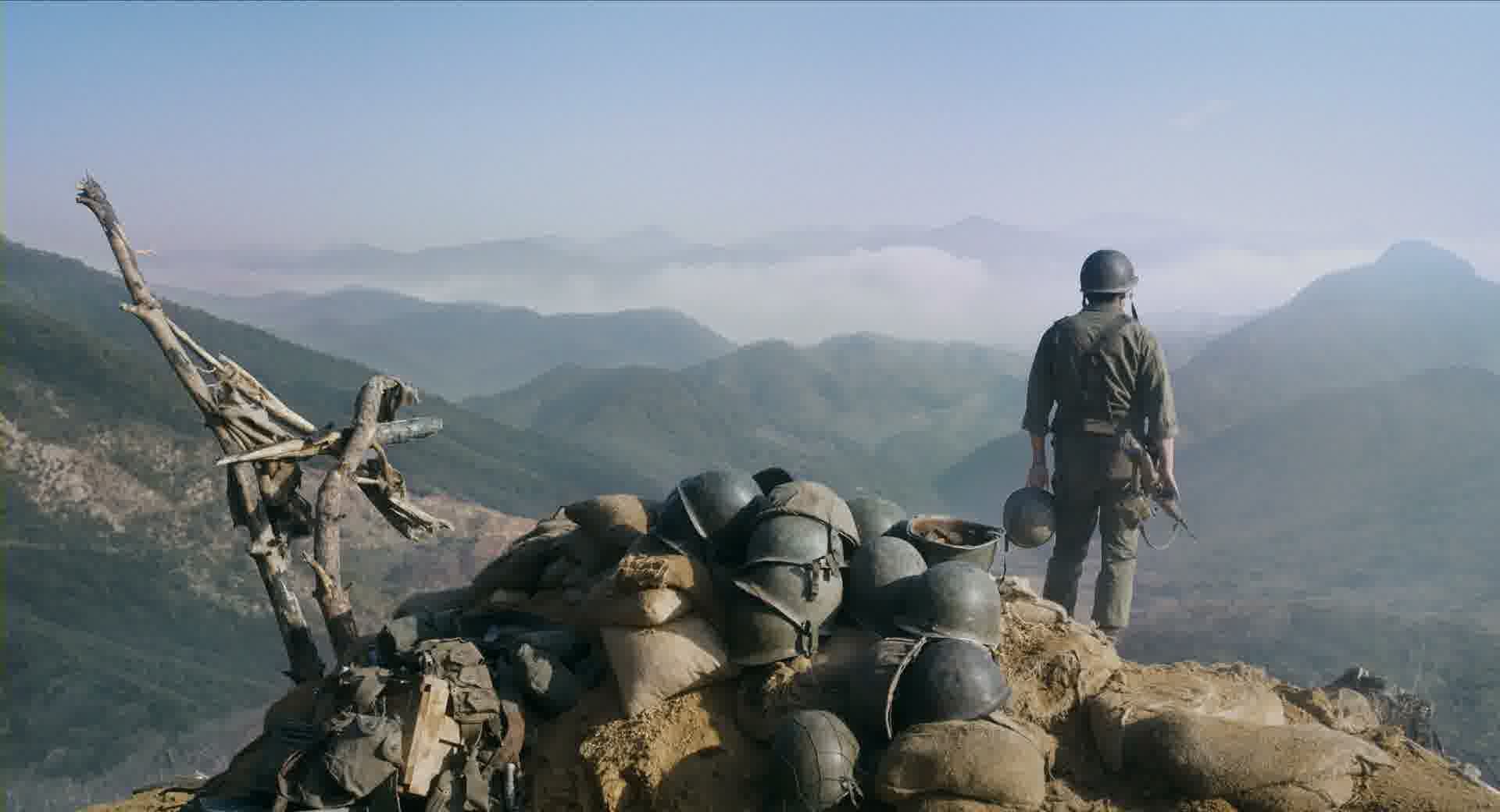
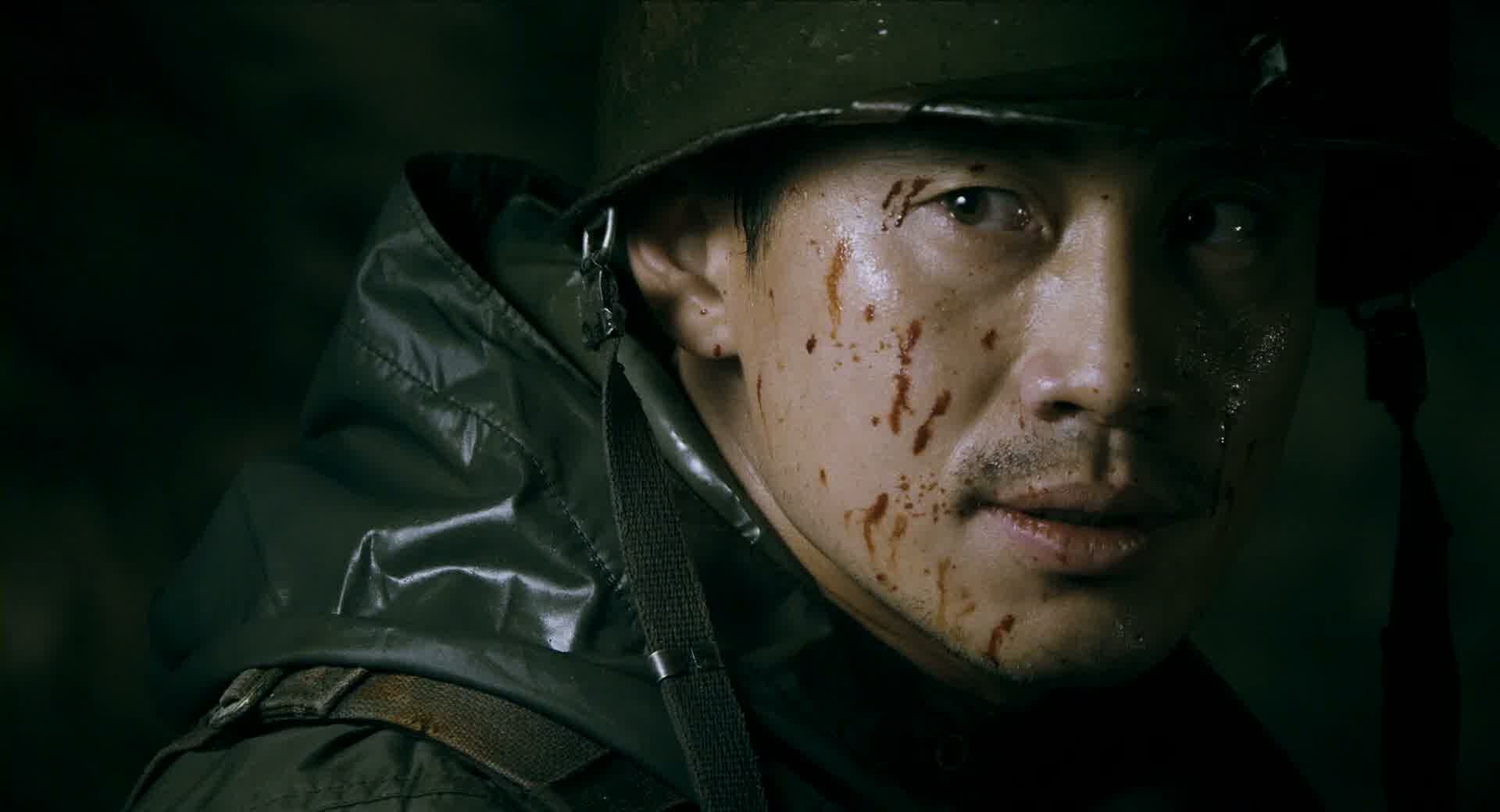
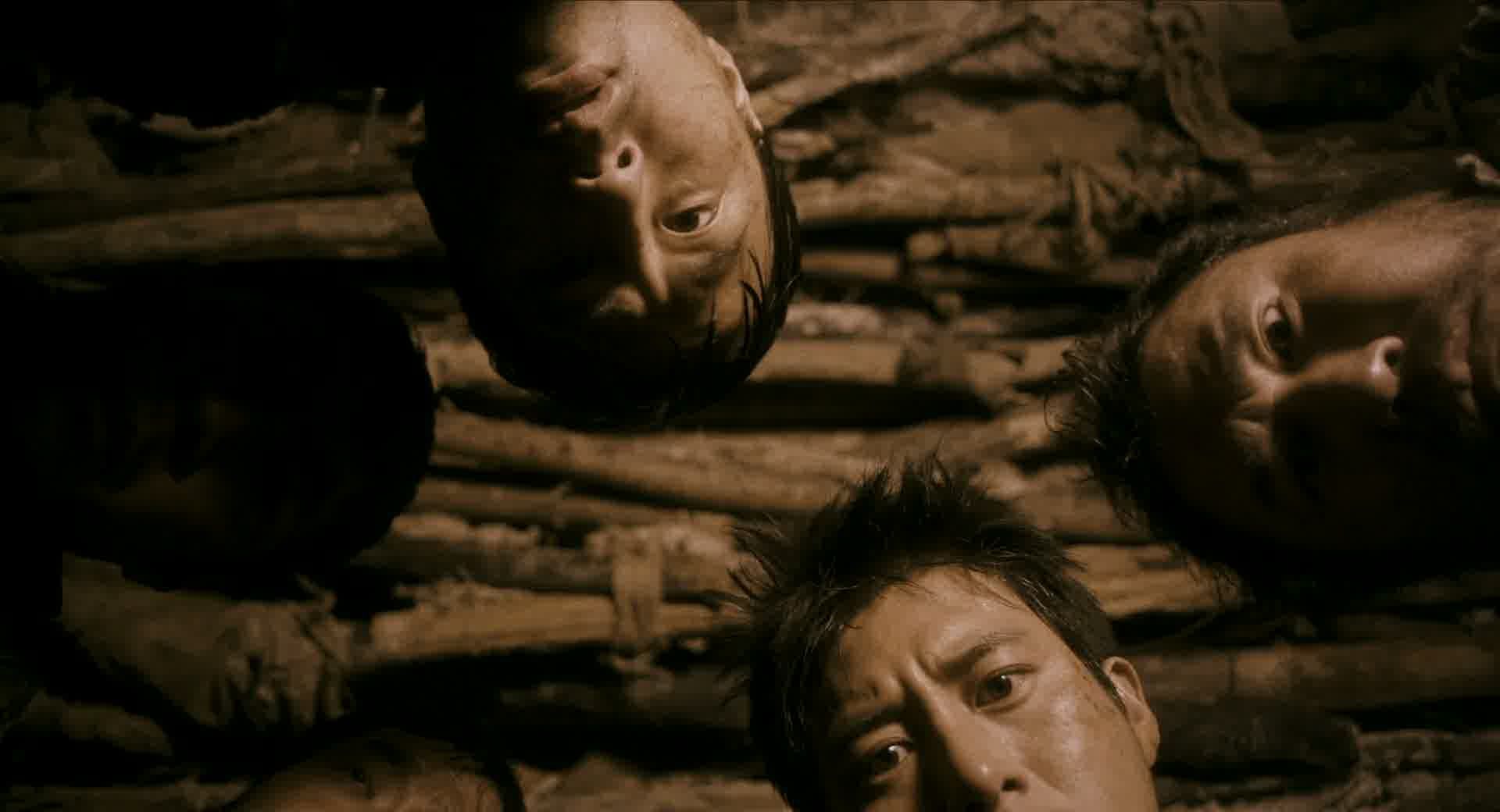
 Interview with Kim Yoo-jung
Interview with Kim Yoo-jung Hello Dramabeans series
Hello Dramabeans series
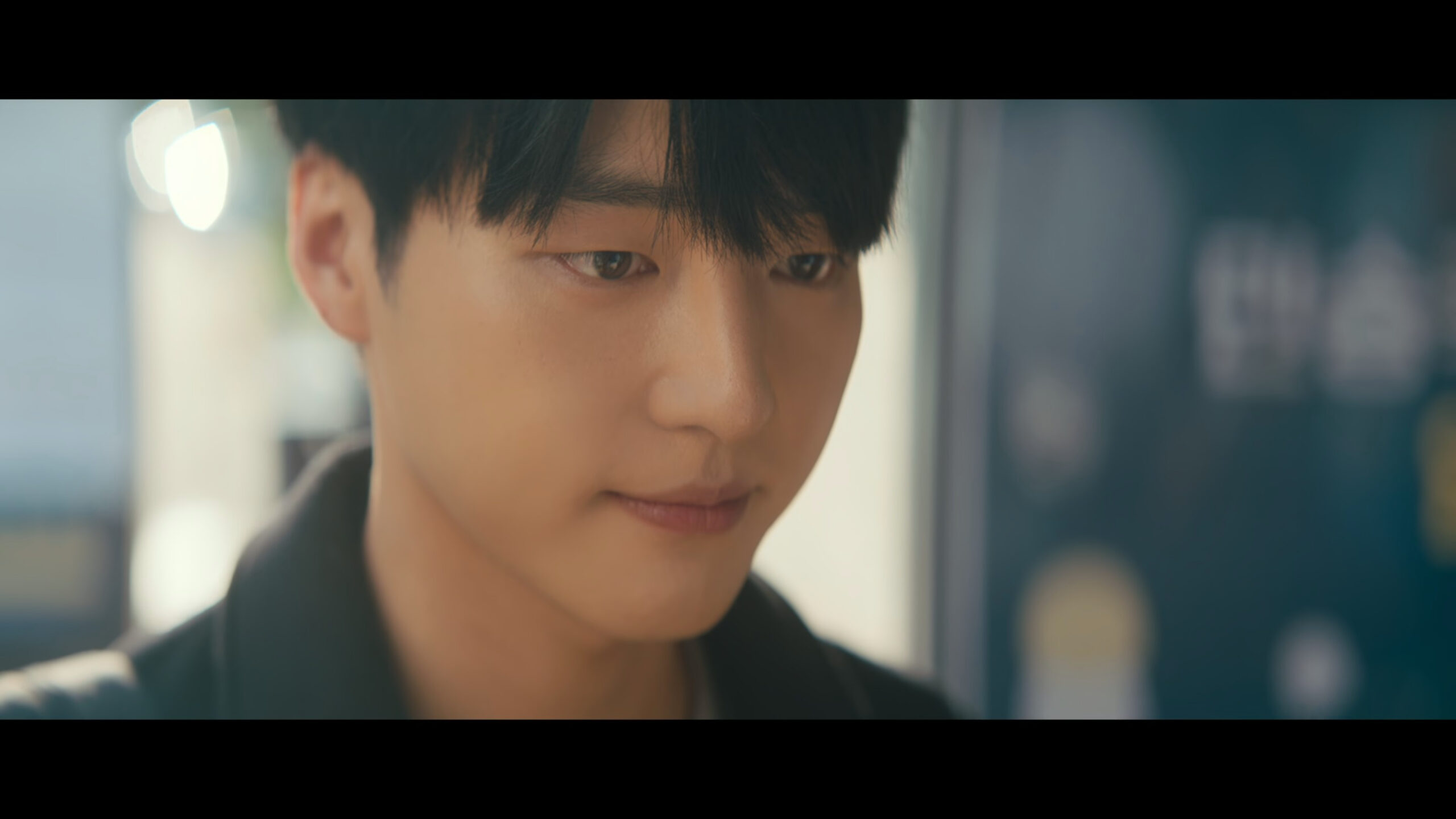
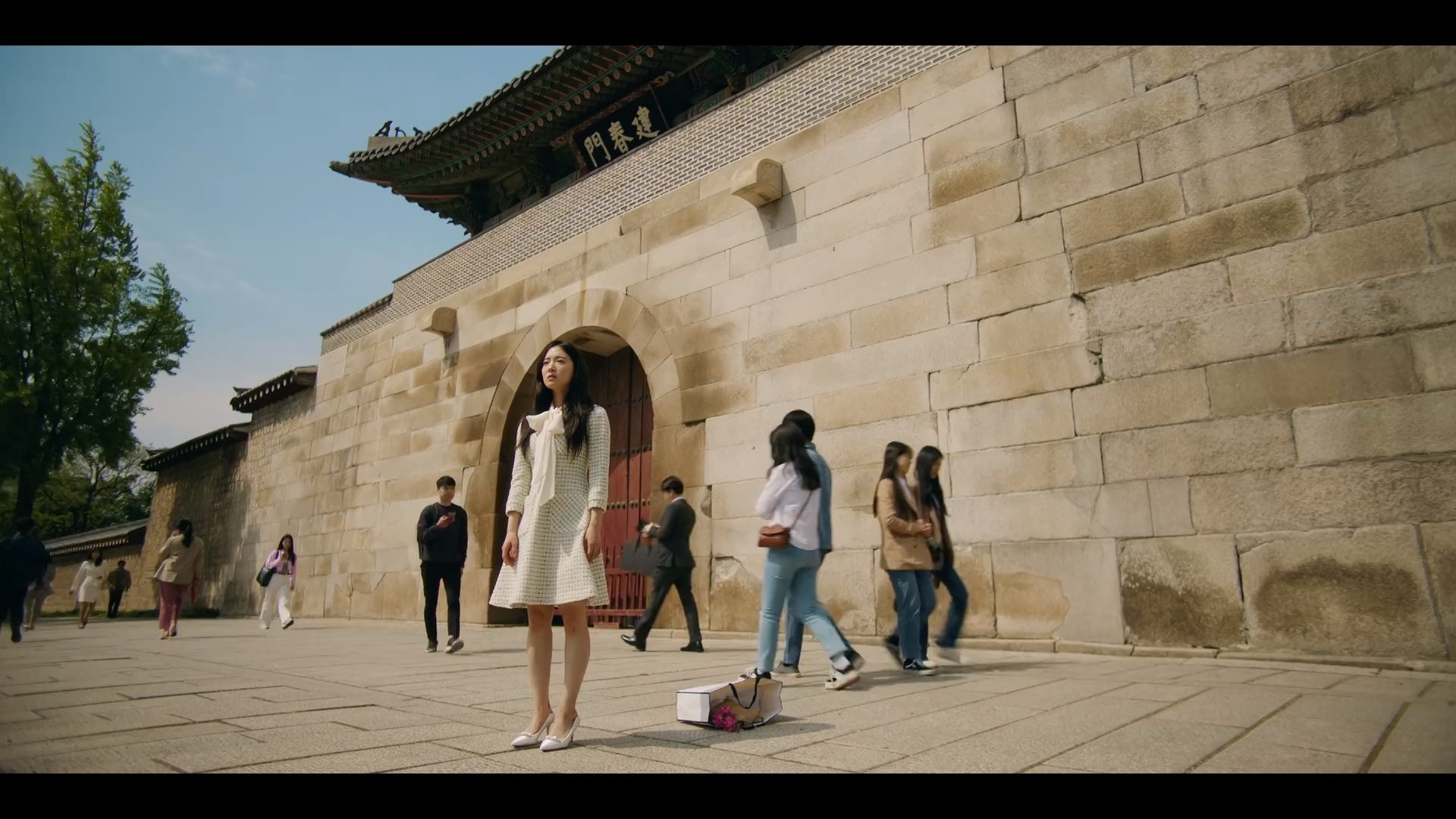


![[2022 Year in Review] The Bean Count](https://www.dramabeans.com/wp-content/uploads/2022/11/beancount_2022.png)
Required fields are marked *
Your email address will not be published. Required fields are marked *
1 Pearl
February 26, 2012 at 5:46 AM
Not a fan of war movies. I enjoy reading your review though, so thanks & keep 'em coming. :)
Required fields are marked *
2 kbap
February 26, 2012 at 8:25 AM
Thank you! I liked this movie a lot, though I hated it when some of my favorite characters died... Oh well. Then again it IS about war. Thanks! :)
Required fields are marked *
kbap
February 26, 2012 at 8:39 AM
Il-young... :( lol. Awesome movie!
Required fields are marked *
3 jandoe
February 26, 2012 at 8:29 AM
awww I'm prolly gonna pick this up and give it a go thanks to your review HeadsNo2 :)
Required fields are marked *
4 NoRae
February 26, 2012 at 9:04 AM
Sad movie :( I'm not a fan of war movies but I had to watch this (at least for Go Soo ^^) and I wasnt disapointed. Heartbraking but that's war after all.
Is it just me or Lee Je Hoon is everywhere lately? 2011 was HIS year ^^
Required fields are marked *
sarah
February 8, 2015 at 11:47 AM
please please please can you tell me the website you watched in it please i really want to watch the front line really badly :( thanks <3
Required fields are marked *
5 Brainy
February 26, 2012 at 9:16 AM
Shin Ha Kyun is really an amazing actor. He is able to transform into different character/person in different movie/drama as required by the script and his acting repertoire is so wide and deep. His intricate acting is really amazing, one of the best I have seen of Korean actor so far.
I am surprise that it has taken him so long to gain the recognition and popularity as he enjoying now.
Just a word on his facial fengshui. He has a pair of "dragon and pheonix" eyes. The left side of his eye (on the screen right side) is single-lid, whilst the right side of his eye (one the screen left side) is double-lid. This represents someone who is unpredictable and can be quite moody (internal conversation with himself). Nevertheless, his eyes will likely to be more balance when he grows older.
He is now at the age group (35-40) in which eyes form the most important luck pillar in his facial features. Having a pair of dragon and pheonix eyes will assist him in gaining popularity from both male and female viewers. When his luck move to his cheeck (45-50).....(P.S. will be continued once I studied his four pillars of destiny in details).
BTW, I am now doing the analysis for Choi Jung Won, SHK's co-star in Brain. Wonder anyone of you know her exact birthday? Her date of birth differs from one site to another.
Required fields are marked *
Brainy
February 26, 2012 at 9:34 AM
The uneven set of eyes also indicates that SHK is capable of seeing things from a different perspective and applying lateral thought processes to resolving problems. In his case, may be projecting the intricate emotions through his eyes.
His eyes seem to be able to talk. Another Asian actor whose eyes can talk, I believe is Tony Leung Chiu Wai of Lust and Caution.
I am looking forward to his new projects. His pairing with Tang Wei will be intriguing!!
Required fields are marked *
houstontwin
February 26, 2012 at 11:17 AM
I have never seen this sort of eye interpretation before! Fascinating! I also think that SHK is a phenomenal actor. He often transcends the vehicle that he appears in.
Required fields are marked *
Brainy
February 26, 2012 at 11:29 AM
The "dragon and pheonix" also indicates a man who can be very compassionate at one hand, but very cruel on the other. It is hard to predict, but facinating person!! I believe he will develop a double eye-lid on his right eye when he grows older, may be starting from age 42. Let's observe him when he age in the next 5 years!! His metamorphosis will be an interesting study for facial fengshui!! ^__________^
Required fields are marked *
~Feather~
February 26, 2012 at 2:20 PM
This is the first time I've heard of facial fengshui. It's very intriguing! May I ask how you learned it and learned of it? I'm interested in these things. :)
Brainy
February 27, 2012 at 3:21 AM
It is my hobby. I started from palm reading, then progress to purple star analysis. Then, I pick up fengshui, handwriting analysis, four pillars of destiny, I Ching, astrology, blood type analysis...facial fengshui in recent years. Now, I am learning body structure analysis, sole foot analysis and mole analysis. The latest being, diagnosis of illness and doing prevention. Hehe...I have this interest since I am around 7 or 8 years. First, learn it through my grandpa, who is an amateur. Then, learn various techniques like how to read Luoban and combine diagnosis from some masters and books. I am still an amateur, but I think I know the theory much better than a lot of the so called masters, who earn the trade as a living.
The last time I did the four pillars of analysis was for BYJ and CJW in 2002. For 10 years, I have monitored their development. I would say, the analysis has been quite accurate. It has been 10 years and I am getting a bit sick of those 2. I am so glad that SHK and new CJW came along, and they will be under my radar (hehehe...) perhaps for the next 10 years!!!
6 stratosphere
February 26, 2012 at 9:19 AM
I saw this in Korea a few months before finally watching Taegukgi for the first time... Personally, I thought this was a better film. Was interesting having to watch it without subtitles though, lol. My Korean was only good enough for me to pick up a few of the more important lines. Great review, HeadsNo2, thanks.
Required fields are marked *
7 Cynthia
February 26, 2012 at 9:34 AM
WAR.
What is it good for?
Absolutely nothin'!
Say it again......
Boy, do I hate war movies - or frankly, most anything to do with the subject. Man's inhumanity to man isn't one of my favorite subjects. It only punctuates the fact that if we women ran the world.....well, you know how that story goes.
Well-written review, HeadsNo2, even if the subject matter isn't my personal cup of tea.
:)
Required fields are marked *
Brainy
February 27, 2012 at 10:06 AM
I'm selective of the war movies. Shindler's List is still my all time favourites.
I am now watching Downton Abbey (Season 2) which is a war time story that took place during WW1. My mom loves the plot of the war portion, I guess, many of you ladies will like it too. I like Season 1 better i.e before the war.
http://en.wikipedia.org/wiki/Downton_Abbey
Required fields are marked *
8 DarknessEyes
February 26, 2012 at 9:53 AM
Yeah, i dont think I would have ever watched this movie- war movies are not my thing, but I am really glad that you recapped it! Thanks so much, it was an interesting read. Tho sad.
Required fields are marked *
9 mskololia
February 26, 2012 at 10:50 AM
Thanks HN2.
Even though I love me some Shin Ha-kyun and am glad he is getting the recognition his acting demands, I no longer watch war movies unless they are of the "ancient" variety with spears and such.
I agree with Cynthia's post and "...saying it again".
Required fields are marked *
10 houstontwin
February 26, 2012 at 11:18 AM
Thanks for the terrific review! I wonder if Netflix will pick up this movie?
Required fields are marked *
Mama J
February 27, 2012 at 4:12 PM
If it gets enough notice in the Western Hemisphere they probably will, eventually - they seem to hit the bigger movies, just slowly.
Required fields are marked *
11 ilovemandoo
February 26, 2012 at 3:44 PM
Personally, I wasn't a big fan of the movie, though I admit that it was well made. I do have one question concerning historical accuracy though.. What was Kim Ok Bin's character even doing in a war? How did she get there, and why was she even permitted to fight? It seems implausible that a girl would be in the battlefield, regardless of how competent she is.
Required fields are marked *
Quiet Thought
February 26, 2012 at 7:32 PM
A Communist thing, ilovemando. The Soviets were famous in World War II for their female snipers, publicizing them and giving them medals for their skills. The Chinese Communists had them too. Kim Il-sung was a devoted follower of Stalin, so it would make sense for him to copy that Russian idea.
Required fields are marked *
12 mysterious
February 26, 2012 at 4:23 PM
I find Shin Ha-Kyun to be so sexy. His eyes make me melt and his lips make me want to kiss them. When he was in the drama Brain, I just about died from watching him in all his glorious sexiness.
Required fields are marked *
Brainy
February 27, 2012 at 3:04 AM
You are so funny. Even Dr. Go in Brain has a crushed with him!!
Required fields are marked *
13 cheekbones
February 26, 2012 at 6:52 PM
I've watched the movie. I agree with your 8 rating out of 10. And I couldn't take my eyes off of Lee Je-hoon whenever he's on screen.....
Btw, it's actually an anti-war movie.
Required fields are marked *
skelly
February 27, 2012 at 12:56 PM
Definitely sounds like an anti-war movie. Movies like this show that South Korea has reached a new phase in it's comfort level in terms of security. South Korea must now feel that it is not in imminent danger of being taken over by the communists, that such a thing will not happen and that it's current phenomenal success and standard of living will not be taken from them.
From this comfortable vantage point, artists can take the moral high ground of "war is bad" and "enemies are just poor pawns like us." This is a good position to be in.
But I wonder if such a movie as this could even be seen in North Korea, much less made. Everyone would have to be sent to a re-education camp.
Required fields are marked *
14 buttrcup
February 26, 2012 at 9:57 PM
OMOMOMOMOMOMOMOMOMOMOMOMOMOMO... GO FRIGGIN' SOO!!!!!!!!!!!!!!!!!!!!!!!!!
/swooooooooooon.
Required fields are marked *
15 Julyssa
February 27, 2012 at 1:02 AM
Hi! You might want to add this to the Korean Movie blogathon that starts next week. Here's more info: http://newkoreancinema.com/join-us-for-korean-blogathon-2012-3595
Required fields are marked *
16 lmf
February 27, 2012 at 9:28 PM
Thanks for your review! I always love reading these. If you're looking for movies to review next, would you consider JSA or The Good, the Bad, the Weird? I would love to read your thoughts on either of these.
Required fields are marked *
17 jomo143
March 13, 2012 at 11:20 PM
Thanks for this review, heads.
I have had this to watch for a while, I finally got up the nerve tonight.
Not just another movie to convince us war is bad. This one expressed in a beautifully horrifying way, the conflicting loyalties we feel facing the enemy, especially when the enemy is our brother.
It took me years, but I finally understand why SK filmmakers keep going back to brother/rival theme that hits me so hard: Sixty+ years of civil war seeps into everything. And in Sandglass, The Duo, Warrier Baek Dong Su, they always end up killing the other because someone told them to.
It's not a Harry Potter/Voldemort division of good and evil.
It's Harry vs Ron and always leaves a mark.
Required fields are marked *
18 Daisy
April 16, 2015 at 11:15 AM
I absolutely fell in love with this movie. Its dark and bleak which fits the war, and the way the story is told, the cinematography and the amazing performance from the actors make it outstanding. I thing its one of the Korean movies that are a MUST WATCH!
There is this touching scene right before the final battle where both NK and SK sing that lullaby song and its so beautiful it brings tears in the eyes..
Its a song I really want to find but no luck so far. IF someone know can you please tell me the songs name and singer? Please!
Required fields are marked *